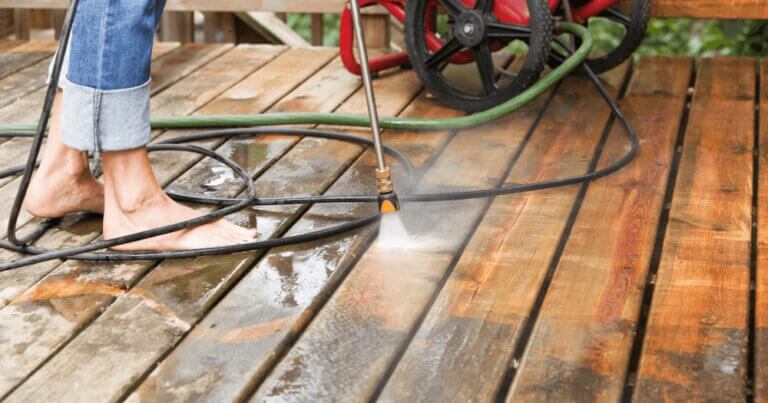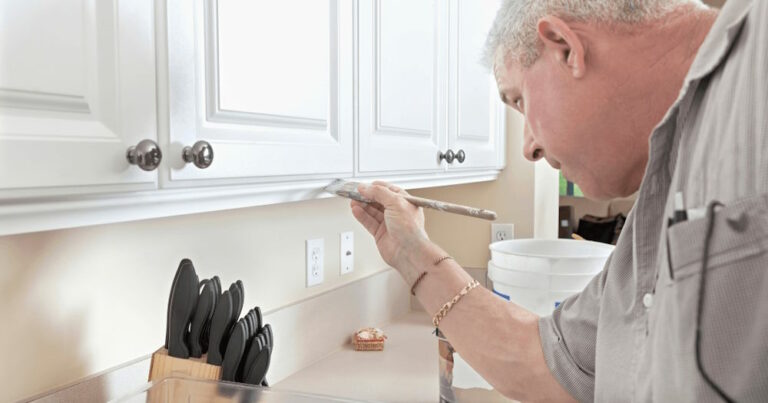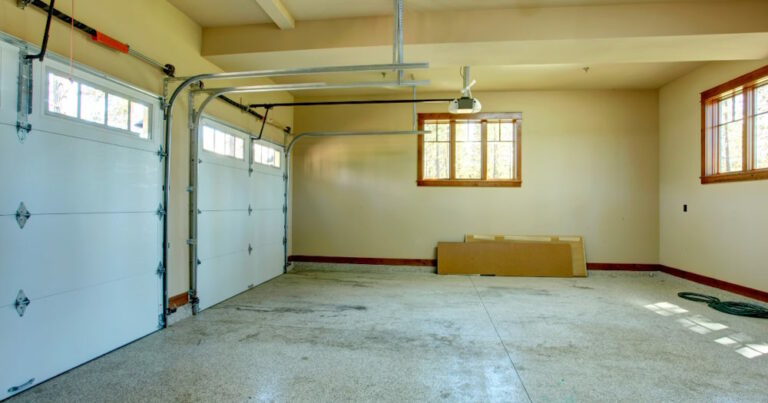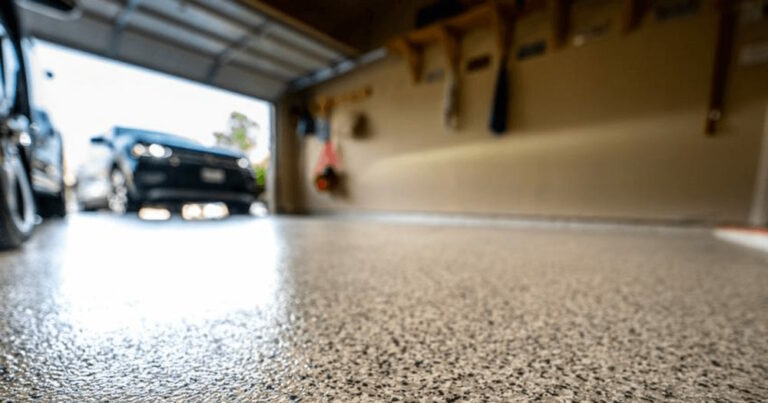If you’re planning to upgrade your floors, you’ve probably asked yourself “What is Epoxy Flooring”, and what benefits does it offer? In this section, we’ll explore the basics of epoxy flooring, including its definition, uses, and advantages.
Epoxy flooring is a type of floor coating made from epoxy resin, a material that undergoes a chemical reaction when mixed with a hardening agent. The resulting mixture creates a tough and durable surface that can withstand heavy foot traffic, chemicals, and other wear and tear.
Epoxy coatings are highly versatile and can be used in various settings, including residential, commercial, and industrial spaces. Its superior performance and aesthetic appeal make it an attractive choice for many property owners.
Key Takeaways
- Epoxy flooring is a type of floor coating made from epoxy resin.
- It undergoes a chemical reaction when mixed with a hardening agent to create a tough and durable surface.
- Epoxy floor coating can be used in residential, commercial, and industrial settings.
- It offers superior performance and aesthetic appeal.
- Epoxy floor can withstand heavy foot traffic, chemicals, and other wear and tear.
Understanding Epoxy Flooring
What makes epoxy floor coatings so unique is the chemical reaction that occurs during installation. Epoxy resin, a two-part mixture made up of resin and hardener, is combined to create a highly durable coating for flooring. This chemical reaction creates a bond with the underlying substrate, resulting in a surface that is exceptionally strong and long-lasting.
occurs during installation. Epoxy resin, a two-part mixture made up of resin and hardener, is combined to create a highly durable coating for flooring. This chemical reaction creates a bond with the underlying substrate, resulting in a surface that is exceptionally strong and long-lasting.
The resulting coating is incredibly durable, making it an ideal choice for high-traffic areas. Unlike other flooring options, epoxy floor coating is resistant to impacts, abrasions, and stains. It can withstand heavy loads, making it a popular option for industrial environments. Its durability also ensures that it can last for many years without requiring significant repairs or replacement.
Another benefit of epoxy coating is its customizable nature. There are various colors, patterns, and finishes to choose from, allowing you to create a unique look that complements your space. From metallic finishes to decorative flakes, there are numerous options to choose from that can enhance the visual appeal of your floors.
Epoxy coatings are a popular choice for those looking for a durable and long-lasting flooring option. Its unique chemical reaction creates a strong bond, and its customizable nature allows you to create a look that suits your style.
The Versatility of Epoxy Flooring
Epoxy flooring is a popular choice for both residential and commercial spaces, thanks to its versatility and durability. Here are some of the most common applications of epoxy flooring:
| Residential Applications | Commercial Applications | Industrial Applications |
| Garage floor | Retail stores | Manufacturing facilities |
| Patio areas | Hospitals and clinics | Warehouses |
| Kitchens | Hotels and restaurants | Airport hangars |
| Bathrooms | Office buildings | Correctional facilities |
As you can see, epoxy paint has a wide range of applications in various settings. Its strength and durability make it an excellent choice for both high traffic and heavy-duty areas.
Advantages of Epoxy Flooring
Epoxy flooring is becoming a popular choice among homeowners and businesses for several reasons. It offers numerous advantages that make it an attractive option in comparison to other types of flooring. So, what are the benefits of choosing epoxy paints? Let’s find out!
Durability
One of the most significant advantages of epoxy flooring systems is its exceptional durability. Epoxy resins used in the flooring undergoes a chemical reaction, forming a tough and long-lasting coating that can withstand heavy foot traffic, machinery, and even chemical spills. Epoxy flooring is also resistant to scratches, impacts, and abrasions, making it a practical and reliable choice for both residential and commercial settings.
Easy Maintenance
Epoxy flooring is incredibly easy to clean and maintain, making it a popular choice in high-traffic areas. Unlike other types of flooring that can stain or succumb to wear and tear quickly, epoxy flooring is resistant to dust, dirt, and oil. It only requires occasional sweeping, mopping, and vacuuming to keep it looking clean and pristine.
Customizable
Epoxy flooring is highly customizable, and the design possibilities are virtually endless. You can choose from a wide range of colors, patterns, and finishes to achieve the look and feel you desire. Whether you want a glossy or matte finish, 3D effects or metallic shimmer, epoxy flooring can provide you with the aesthetic appeal you envision.
Installation Process of Epoxy Flooring
Installing epoxy flooring requires proper surface preparation, precise application techniques, and adequate curing time for optimal results. Here is a step-by-step guide to the installation process:
- Surface Preparation: The first step in installing epoxy flooring is surface preparation. The surface must be clean, dry, and free of any debris, oil, or grease. Depending on the condition of the surface, it may need to be sanded, shot blasted, or acid etched to ensure proper adhesion.
- Priming: Once the surface is properly prepped, a primer coat is applied. This helps to create a strong base for the epoxy to adhere to and promotes better curing. It’s important to allow the primer to dry completely before proceeding to the next step.
- Epoxy Application: The next step is to apply the epoxy coating. This can be done by using a roller or brush, or by spraying the epoxy onto the floor. The number of coats needed will depend on the desired thickness and finish. It’s important to follow the manufacturer’s instructions and allow each coat to dry completely before applying the next one.
- Curing Time: Once the epoxy coating is applied, it needs to cure. This process can take anywhere from 12 to 24 hours depending on the type of epoxy used, humidity levels, and temperature. It’s important to avoid walking or placing any objects on the floor until it’s fully cured.
- Topcoat Application: After the epoxy has cured, a topcoat is applied to provide additional protection and durability. This can be a clear coat or a colored finish, depending on the desired look.
- Final Curing: Once the topcoat is applied, the floor needs to cure for an additional 24 to 48 hours before it’s ready for use.
It’s important to follow each step carefully to ensure a successful installation. Hiring a professional to install your epoxy flooring can also help ensure that the process is done correctly and efficiently.
Maintenance and Care for Epoxy Flooring
Proper maintenance and care are essential to ensure the longevity and beauty of your epoxy flooring. Here are some cleaning tips, advice on avoiding damage, and the importance of regular inspections:
Cleaning Tips
For day-to-day maintenance, sweep or dust mop your epoxy floors to remove dirt and debris. For more thorough cleaning, use a neutral pH cleaner diluted with water, and avoid using harsh chemicals or abrasive cleaners. Rinse the floors thoroughly and dry them with a clean mop or towel to prevent water spots.
Avoiding Damage
While epoxy flooring is highly durable, it’s important to take precautions to avoid damage. Avoid dragging heavy furniture or equipment across the floors, as this can cause scratches or gouges. Use furniture pads or casters, and place mats at entryways to prevent dirt and debris from being tracked in.
Regular Inspections
Regular inspections can help identify any issues with your epoxy flooring before they become major problems. Inspect your floors regularly for scratches, gouges, or other signs of damage. Also, check for any areas where the coating may be wearing thin, as this can lead to peeling or flaking. Address any issues promptly to prevent further damage.
Comparing Epoxy Flooring to Other Options
When considering flooring options, it’s important to compare and weigh the pros and cons of each choice. Here, we’ll compare epoxy flooring to other popular options to help you make the best decision for your needs.
Epoxy vs. Traditional Flooring
Traditional flooring options such as hardwood, carpet, and vinyl have been around for a long time. While these options may offer aesthetic appeal, they lack the durability and customization options of epoxy flooring. Epoxy floors are extremely durable and can withstand heavy foot traffic and even machinery. They also offer a wide range of design options with different colors, patterns, and finishes.
Epoxy vs. Concrete Stain
Concrete stain is another popular flooring option, but it doesn’t offer the same level of durability and customization as epoxy flooring. Concrete stain is susceptible to fading and chipping, while epoxy floors form a strong bond with the concrete surface, creating a durable and long-lasting coating.
Epoxy vs. Tiles
Tiles have long been a popular choice for high-traffic areas, but they can be expensive and prone to cracking and chipping. Epoxy flooring offers a more cost-effective and durable alternative. Plus, epoxy floors are highly customizable and can emulate the look of tiles without the associated costs and maintenance.
Addressing Common Concerns about Epoxy Flooring
Before committing to epoxy flooring, many people have questions and concerns. In this section, we’ll cover some of the most common concerns, including epoxy smell, slip resistance, and lifespan.
Epoxy Smell
During installation, some people may notice a strong odor emanating from the epoxy. This smell is temporary and typically only lasts a few days. Proper ventilation can help mitigate the smell, and once the epoxy has cured, it should no longer be an issue.
Slip Resistance
Some people worry that epoxy flooring may be slippery, particularly when wet. However, there are slip-resistant additives that can be mixed into the epoxy, making it safer to walk on. These additives do not detract from the appearance of the flooring, and can offer added peace of mind.
Lifespan
One of the most significant advantages of epoxy flooring is its durability. When properly installed and maintained, epoxy flooring can last for decades. However, its lifespan can be affected by factors such as heavy traffic, exposure to harsh chemicals, and improper installation. Regular inspections and maintenance can help ensure that your epoxy floors remain in good condition for years to come.
Cost and Return on Investment of Epoxy Flooring
Before deciding to invest in epoxy flooring, it’s essential to consider the cost factors involved. Pricing for epoxy flooring can vary depending on various factors such as the size of the area, the type of epoxy used, and the complexity of the installation process. It’s important to get an estimate from a professional installer to help you understand the total cost.
| Factors that impact pricing | Details |
| Size of the area | The larger the area, the more epoxy material will be required, increasing the cost. |
| Type of epoxy | There are different types of epoxy, such as solvent-based and water-based, each with their own price point. |
| Complexity of installation | If the surface requires extensive preparation or repairs, this can add to the overall cost. |
Despite the upfront cost, epoxy flooring can provide long-term savings. Its durable and easy-to-clean surface requires little maintenance, which can save you money on cleaning and repair costs over time.
Additionally, epoxy flooring can increase the value of your property. Its sleek and modern appearance is attractive to potential homebuyers and can set your property apart from others on the market. Investing in epoxy flooring can be a wise financial decision for both residential and commercial properties.
Consider the long-term benefits and potential return on investment when making your decision about epoxy flooring. The initial cost may seem high, but the long-term savings and increased property value make it a worthwhile investment.
Conclusion

Overall, epoxy flooring is an excellent option for those looking to upgrade their floors in residential, commercial, or industrial settings. With its unique properties and various benefits, epoxy flooring offers durability, easy maintenance, and customization options that traditional flooring cannot match.
If you’re considering epoxy flooring, it’s essential to consider factors such as the installation process, maintenance and care, and the cost and return on investment. By doing so, you can determine if epoxy flooring is the right solution for your flooring needs and make an informed decision.
Ready to unlock the full potential of epoxy in your projects? Contact us at Canyon Painting for expert advice, quality products, and personalized solutions. Elevate your projects with the power of epoxy – a versatile ally that brings durability, creativity, and functionality to the forefront. Take the next step and reach out to us today
Final Thoughts
While there are various flooring options available, epoxy flooring is undoubtedly a standout choice. Its versatility, durability, and customizable options make it a popular choice among homeowners and businesses alike. By following proper installation and maintenance procedures, you can enjoy the long-lasting benefits of epoxy flooring for years to come.
FAQ
What is epoxy flooring?
Epoxy flooring is a type of flooring that consists of a resin and hardener mixture that undergoes a chemical reaction to form a strong and durable coating for floors.
What are the uses of epoxy flooring?
Epoxy flooring is commonly used in residential, commercial, and industrial settings. It is often found in garage floors, warehouses, retail spaces, hospitals, and more.
What are the benefits of epoxy flooring?
Epoxy flooring offers exceptional durability, easy maintenance, and the ability to customize the appearance of your floors with different colors, patterns, and finishes.
How is epoxy flooring installed?
The installation of epoxy flooring involves steps such as surface preparation, application techniques, and allowing the coating to cure for the recommended time period.
How do I maintain and care for epoxy flooring?
Proper maintenance of epoxy flooring includes regular cleaning, avoiding damage from heavy objects or sharp tools, and conducting regular inspections to identify any potential issues.
How does epoxy flooring compare to other flooring options?
Epoxy flooring offers advantages over traditional flooring, concrete floors, and tiles in terms of durability, customization options, and maintenance requirements.
What are some common concerns about epoxy flooring?
Some common concerns include the initial smell that can occur during installation, the slip resistance of epoxy floors, and the expected lifespan of the coating.
How much does epoxy flooring cost?
The cost of epoxy flooring depends on various factors such as the size of the area, the condition of the existing floor, and any additional customization options. It is best to consult with a professional for an accurate quote.
What is the return on investment for epoxy flooring?
While epoxy flooring comes with a cost, it offers long-term savings due to its durability and easy maintenance. Additionally, it can potentially increase the value of your property.





